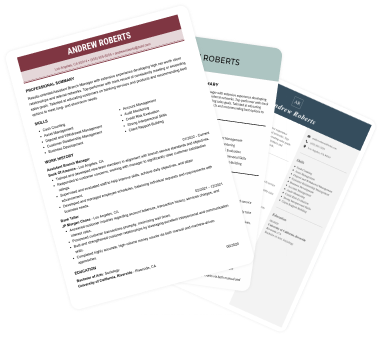
Top 50 Highest Paying Jobs in the UK in 2026
See the top 50 highest-paying jobs in the UK for 2026 across different industries. Explore salary ranges, job descriptions, and expectations.
February 14, 2026
Last updated on 29 January, 2026

Our customers have been hired by*:
In today’s competitive UK job market, office perks are no longer about ping-pong tables or free snacks – they’re about improving real lives. From flexible hours and hybrid work arrangements to childcare support and mental health initiatives, the most effective benefits make employees feel trusted, supported, and valued. Drawing on data from the CIPD, ONS, and leading workplace studies, I reveal which perks truly engage and retain talent in 2025 – and why genuine flexibility and wellbeing support now define the best places to work.
Flexible hours, i.e. letting staff shift start/end times or condense their week, top employees’ wish-lists. A recent CIPD survey shows that inflexibility drives talent away: 3% of UK workers quit their jobs since January 2024, specifically because they lacked flexible working options. That’s roughly 1.1 million people.
At the same time, most organisations now offer a degree of flexibility, but many employees still feel micromanaged. While 91% of employers said some flexibility is provided, 53% of staff felt pressure from senior leaders to spend more time in the office. This gap fuels turnover. Employees value flexibility immensely, as 4 in 5 say it has improved their quality of life, and a third claim it has increased their career prospects.
The lesson for employers is clear: back flexible working not just in policy but in practice. As the CIPD notes, consistently supporting flexible hours will help organisations “attract and retain talent in a highly competitive market”. In practice, this means offering choices such as flextime, compressed hours, or staggered shifts to accommodate life's demands.
Closely related to flexible hours is where work happens. Remote and hybrid arrangements – letting employees work partly or fully from home – have become the “new normal” for many sectors. Recent ONS figures show more than a quarter (28%) of British workers were on hybrid schedules (mix of home/office) in early 2025. Those numbers have risen steadily since 2022 as firms have moved away from full-time office mandates.
The benefits of remote work are significant. ONS research found that homeworking staff save an average of 56 minutes per day by skipping the commute. Much of that time goes to rest and health: on work-from-home days, people spend about 24 extra minutes sleeping and 15 extra minutes on exercise or wellbeing activities. The productivity gains are notable, too, as employers frequently cite “improved staff well-being” as a major reason for expanding hybrid work.
By contrast, rigid in-office mandates can backfire. The combination of location flexibility and trust tends to keep people loyal; forcing people back to the office “just because” risks attrition. Employers should design hybrid schemes that genuinely balance business needs with employees’ lives, avoiding blanket rules and instead agreeing on schedules collaboratively.
For working parents and carers, childcare costs and family responsibilities are top concerns. Supportive policies here pay loyalty dividends. In The Working Parents Survey, commissioned by Remote, over 70% of working parents have either quit or considered quitting their jobs because childcare is too expensive or unavailable. Notably, nearly three-quarters (73%) of parents reported accepting a pay cut or reducing their hours due to unaffordable childcare. In short, when families can’t afford childcare, both they and the employer suffer.
Employees make choices based on the availability of family-friendly policies. Bright Horizons’ latest Modern Families Index found 73% of UK parents would consider their employer’s support for family life before accepting a new role or promotion. Yet satisfaction has dipped: only 68% now feel their organisation truly supports their family responsibilities (down from 77% in 2023). Childcare support – from subsidised nursery care and backup care to flexible parental leave – can reverse this trend. For example, in The Working Parents Survey, 37% of parents said flexible working hours are the top priority when job-hunting (even above pay and job security).
UK employers should consider boosting parental benefits. Childcare vouchers, onsite nurseries, backup care schemes and generous leave can help parents stay in work. The business case is strong: retaining experienced parents saves recruitment costs and closes skill gaps. In fact, experts warn that ignoring family-friendly support only worsens workforce shortages. Employers that provide genuine childcare support and counteract “fake flexibility” gain loyalty and a wider talent pool.
After the pandemic, employee health is at the forefront of mind. In the UK, workplace absence is on the rise. Latest CIPD data (with Simplehealth) report UK staff now take an average of 7.8 sick days a year (3.4% of work time) – the highest in over a decade. Mental health issues and musculoskeletal problems are leading causes of long-term absence. Crucially, work-related stress is widespread: 76% of UK employers report stress-related absences, and 78% say they are actively trying to reduce stress in their organisations.
Financial strains and wider anxieties spill into the workplace. The ongoing cost-of-living crisis is taking a toll: CIPD research found that more than 50% of workers are struggling to pay their bills and meet credit commitments. When workers fear paying the rent or feeding their family, productivity suffers. In fact, Deloitte has calculated that 40% of employee turnover costs are attributable to mental health problems. Put differently, mental health impacts the bottom line through increased absenteeism and turnover.
Employees are noticing the pressure: 25% or more of workers say that work has a negative impact on their mental health. This is a wake-up call. Programmes that prioritise wellbeing, from counselling and mental health days to holistic wellness grants, can help reverse this trend. Many employers have introduced “wellbeing champions,” mental health first-aiders, and subsidised gym or mindfulness classes. But the key is integration. Effective wellness programs treat mental health as part of work life, not an optional extra.
The takeaway: mental-health support is no longer a “nice-to-have.” It’s a strategic imperative. Employers that foster an open culture around mental health – providing counselling, flexible sick leave, and destigmatising taking time off – will see improved attendance and engagement. It’s a win-win: people work when healthy and give their best, boosting morale and productivity.
In the UK, official figures suggest that over half of employees struggle to keep up with their bills and credit commitments. Research by financial firms echoes this; for example, a survey found that 63% had borrowed money to cover basic expenses in the past year. It adds up: when people worry about mortgages or loans, they’re distracted and likely to job-hop for better pay or relief. Forward-thinking employers now offer benefits such as on-site financial coaching, salary advances, and on-demand pay.
By alleviating financial concerns, employers foster loyalty. For example, programmes that boost saving (auto-enrolment pensions, matched contributions) or defray costs (subsidised meals, transport) can reduce turnover. Experts note that organisations addressing financial health see lower stress and absenteeism. Ultimately, financial support perks help employees feel cared for beyond the office walls, reinforcing engagement.
People want to grow, and a lack of development is a fast track to attrition. The LinkedIn Workplace Learning Report 2025 highlights that career progress is employees’ No. 1 motivation to learn – and without it, they look elsewhere.
UK firms lag: only about a third (33%) of organisations have mature career development programmes that produce measurable results. The rest are either just starting or have no strategy. Companies that invest in learning, mentorship, and clear advancement paths experience higher employee engagement. According to the LinkedIn report, organisations with strong career development were 42% more likely to be leaders in AI adoption and overwhelmingly confident in attracting talent. For UK jobs, this means allocating time and budget for training, establishing clear promotion criteria, and providing coaching.
Recognition for hard work also matters hugely. Employee surveys indicate that praise outweighs pay increases in fostering loyalty. For example, 63% of workers would prefer a culture of regular recognition over a 10% pay raise. And 91% of HR professionals agree that formal recognition programmes positively impact retention. Gallup reports that employees who feel well-recognised are far more engaged and connected to company values than those who aren’t. In numbers, nearly 80% of workers say more recognition and reward would make them more loyal to their employer.
The upshot: employers must build growth pathways. That means regular one-on-ones, training budgets, internal job postings, and promotions for high performers. Complement this with a culture of positive feedback. Simple acts such as public shout-outs, spot bonuses, even thank-you notes can reinforce to staff that their efforts matter. In turn, this fuels engagement, innovation and pride in the workplace.
Finally, no perks can compensate for a poor culture or murky communication. Employees need to trust their leaders and feel a sense of belonging to the mission. Unfortunately, recent analysis reveals that low trust is endemic in UK workplaces. For instance, fewer than 20% of UK employees have a very high degree of trust in their senior leaders. Equally striking, only about 8% of UK managers have a similarly high level of trust in their staff. This “trust gap” erodes engagement: people who distrust leadership are much likelier to quietly disengage or resign.
Clear two-way communication is the antidote. Transparent messaging about strategy, regular updates on performance, and honest answers to employee questions build trust. Such transparency reduces rumours and aligns staff to company goals.
In practice, this means listening as much as speaking. Leaders should solicit feedback (through surveys or forums) and then act on it. Celebrating small wins together (project successes, team achievements) also nurtures a positive culture. And, of course, inclusivity and respect, such as zero tolerance for bullying, are table stakes. A collaborative, respectful culture amplifies the impact of all perks: when people feel psychologically safe, they are more likely to use and appreciate benefits, and less likely to leave for minor reasons.
Our research shows that the most effective perks are those that genuinely enhance employees’ lives, not just glitter on the walls. Flexible schedules and remote options give people time back in their day; childcare support relieves a significant financial and emotional burden; wellbeing initiatives address the very real stress of modern life; and financial help tackles day-to-day anxieties. Meanwhile, investing in people through learning opportunities and meaningful recognition signals to staff that they matter as much as the business.
The bottom line: retention hinges on perks that solve problems. Companies that make working life easier (not just more enjoyable) tend to retain their talent. In other words, providing people with benefits that enhance their quality of life is the most effective way to retain them. For UK employers, the takeaway is clear: tailor your perks to what people really want to support their life outside work, and loyalty will follow.
To identify the perks that truly matter to UK workers, we reviewed a range of recent surveys and reports. Key inputs included surveys by the CIPD (the UK’s professional HR body), official statistics (ONS), and industry studies.
In short, we synthesised official data and expert surveys to see which benefits employees rate most highly in 2025.
Our editorial team has reviewed this article for compliance with LiveCareer’s editorial guidelines. It’s to ensure that our expert advice and recommendations are consistent across all our career guides and align with current CV and cover letter writing standards and trends. We’re trusted by over 10 million job seekers, supporting them on their way to finding their dream job. Each article is preceded by research and scrutiny to ensure our content responds to current market trends and demand.
Category: Career Advice
Crafting a job-winning CV is all about showcasing your unique skills and experiences. Start with a strong personal statement that highlights your career goals and achievements.
Try Our CV Builder Now